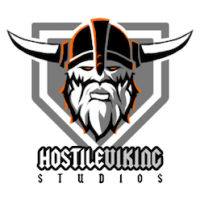I work in the business world. Game programming is just a hobby for me and a passion. Database Administration pays the bills. And I do a fair amount of C# coding at work. SQL Server uses C# for CLR Stored Procedures. Java's useless for that.
I earn 6 figures a year, for whatever that's worth. And I've worked for several Fortune 100 companies at the top of the telecom and software industries.
Not that Java is a bad choice. I do believe that Java is more prevalent than C# in the business world. But it's like 60%/40% with Java on top. You could easily make a career out of C# programming. Knowing Java and C# would make you worth even more.
Now, keep in mind that Unity is actually more like C# scripting. It's not quite the same as coding applications in C#. It's a good start, but it's a long way from what you would be doing in the business world.
If you really want to practice C# in order to develop a job skill, do MonoGame (formerly known as XNA). I used to be very into XNA (I used to run a website with XNA tutorials) and have gone on to DirectX11, OpenGL 4.5, and now I'm working on learning Vulkan. I might mention that XNA prepared me for DX11 and OGL 4.5. So, MonoGame/XNA is a great way to get into the deepest levels of game programming with "training wheels on". It's not going to do as much for you as Unity; and you may never release a commercial game, but as a learning tool I personally don't think it can be beat combined with the XNA 3 and XNA 4 books. (XNA 3 is not actually compatible with XNA 4 and MonoGame. So, be aware of that.)
I would absolutely love to find someone who would pay me 6 figures for my knowledge of low level APIs, 3D math and physics, and game programming. But I'm afraid that isn't going to happen until I'm on the same level as John Carmack, own the company, or both, and I have quite a ways yet to go to catch up with Carmack - so there is that. So, I go to my day job and do game programming on the weekends.
One of several reasons I do game programming is to improve my programming skills so that they stay sharp for my resume (I'm mostly doing C++ now days even though I never do C++ at work and do C# when I code at work 99 times out of 100). But I don't ever intend to work in the game industry.
I talked to a guy the other day who is a professional game programmer and he told me that he doesn't make near what he would make at a big name corporation, but he enjoys what he does. There's something to be said for that. But the programmers at the companies I work for make about $40,000 a year less than me. So, I can't even imagine how little he's making if it's a fraction of $40,000 less than what I make. He's looking at the guys that make $40,000 less than me and saying he doesn't make near what they make, but he's doing what he enjoys. Again, there is a lot to be said for doing what you enjoy. But, I do what I enjoy on the weekends (mostly game programming actually) and can afford to do what I enjoy on the weekends.
Anyway, C# is a viable job skill. Unity is a decent way to get introduced to it, but you need to go way beyond that if you hope to even get an entry level job with C#. MonoGame would probably get you about 80% of the way there if you make complete games with MonoGame/XNA. I think you'll go twice as far with C# in MonoGame as opposed to doing C# in Unity. And then you'll need to learn a fair bit beyond that with Forms and such and doing more standard programming in C#.
If you want to easily make games, Unity is more productive than MonoGame. If you want to get good at C#, MonoGame runs circles around Unity.
If you want to have even more opportunities, you could do Java. (I don't really do Java. So, I can't really tell you the best way to learn or practice Java.) No doubt there are more Java jobs out there than C# jobs. But there are still a lot of C# jobs out there that pay decently well. And then if you want to make the big bucks, go into database administration.
I would really love to find a job where someone will pay me 6 figures for my knowledge of low level APIs, 3D math and physics, and game programming knowledge, but that probably isn't going to happen until I'm at the level of John Carmack, own the company, or both. And I'm a long ways from Carmack's level. One advantage of working in the game industry is you build your skills and get paid for it. I have to build my skills on my own time and don't get paid for it. Still, I'll probably spend $20,000 this year on tools and classes to get better at game programming. So there is that.
I guess the bottom line is you have to do what you believe is right for you. If that's getting a job in the business world and doing game programming for fun then great. If it's getting a not so great starting job in the game industry where you will get paid (not so much) to hone your skills and move up, then that's great too. But you have to decide for yourself what's right for you.
Oh and since we're on the subject of learning C# as a job skill and MonoGame, RB Whitaker's C# book is the place to learn C#. His website used to teach XNA and now teaches MonoGame and C# coding. If you want to learn C# as a job skill, his website, book, and MonoGame would probably be the way to go.









